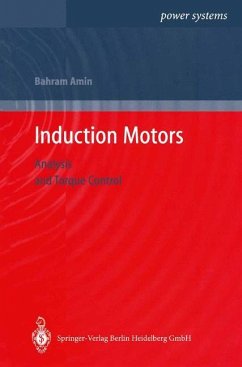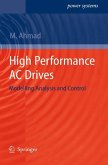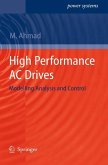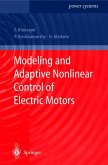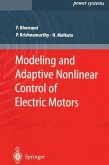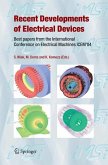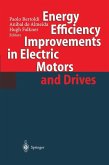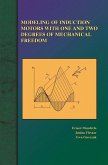It has been more than a century since the principle of the operation of induction motors was discovered. The first industrial motors of this type were constructed at the end of the Nineteenth Century and soon gained the favor of users who appreciated their raggedness, simplicity and relatively low manufacturing cost compared to DC commutator motors. The design and performance of induction motors were improved during the Twentieth to Century, reaching maturity around the late 1930s. Further improvements date principally concern the use of modern construction material, specially for winding isolation, and deeper knowledge of certain phenomena regarding harmonics and noise reduction, more efficient cooling techniques, and so on. Nevertheless, fed by fixed-frequency and fixed-magnitude mainlines, induction motors do not lend themselves to easy speed regulation, and in this respect they have always seemed inferior to DC commutator motors, which had no serious competitors in the field of variable speed applications.
From the reviews of the first edition:
------------------------------------------------------------ "A nice and modern treatment of induction motors." T.A. Lipo, University of Wisconsin/Madison, USA "A well presented treatment of induction motors, their drives and power electronic control bringing together current thinking, simulation and practice with established models and performance." A. G. Jack, University of Newcastle upon Tyne, UK "A solid, clear and lucid text on the theory and analysis of induction machines that could be further extended into the field of high performance drives." W. Leonhard, TU Braunschweig, Germany "A well organized analytic book, directly usable in industrial practice." G. Lacroux, Ragonot Industry Electrical Drives, France
"The use of induction motors has increased because of the improvements in microprocessor-controlled inverter circuits. ... This book details the operation and control of induction motors in both steady-state and transient conditions. ... This book is appropriate for power or electrical engineers studying and working with induction motors. It provides a good comprehensive foundation for understanding the theory of operation and control aspects of modern induction motors, especially since many of the steps used to derive the formulas are worked out in detail." (IEEE Electrical Insulation Magazine, 2004)
"This book provides a thorough approach for mastering the behavior and operation of induction motors, an essential device in the modern industrial world. Its way of presentation renders this book suitable for self teaching by students, engineers, and researchers in the field of electrical engineering." (ETDE Energy Database, February, 2002)
------------------------------------------------------------ "A nice and modern treatment of induction motors." T.A. Lipo, University of Wisconsin/Madison, USA "A well presented treatment of induction motors, their drives and power electronic control bringing together current thinking, simulation and practice with established models and performance." A. G. Jack, University of Newcastle upon Tyne, UK "A solid, clear and lucid text on the theory and analysis of induction machines that could be further extended into the field of high performance drives." W. Leonhard, TU Braunschweig, Germany "A well organized analytic book, directly usable in industrial practice." G. Lacroux, Ragonot Industry Electrical Drives, France
"The use of induction motors has increased because of the improvements in microprocessor-controlled inverter circuits. ... This book details the operation and control of induction motors in both steady-state and transient conditions. ... This book is appropriate for power or electrical engineers studying and working with induction motors. It provides a good comprehensive foundation for understanding the theory of operation and control aspects of modern induction motors, especially since many of the steps used to derive the formulas are worked out in detail." (IEEE Electrical Insulation Magazine, 2004)
"This book provides a thorough approach for mastering the behavior and operation of induction motors, an essential device in the modern industrial world. Its way of presentation renders this book suitable for self teaching by students, engineers, and researchers in the field of electrical engineering." (ETDE Energy Database, February, 2002)

